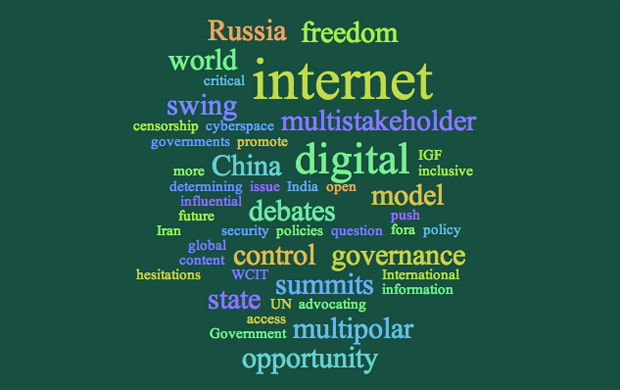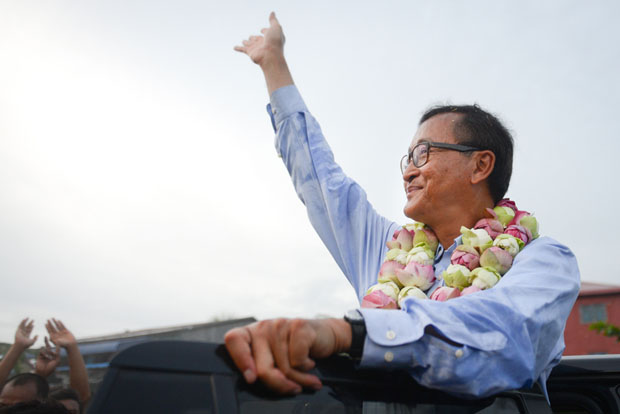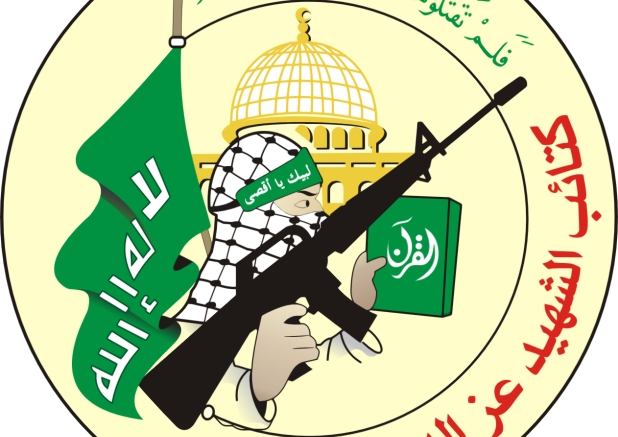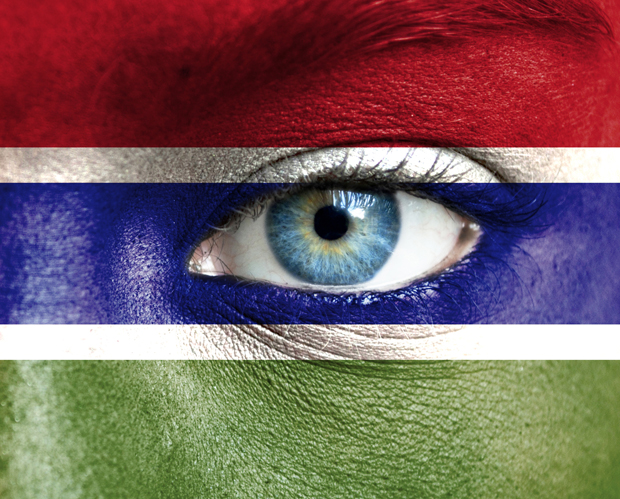20 Jan 2014 | Events

Index invites you to Dilemmas, Debates, Demands and Drinks a candid discussion about working with freedom of expression.
Where: Free Word Centre, 60 Farringdon Road, EC1R 3GA
When: 7 February 7 6.30pm – 9pm
Tickets: Free, but RSVP Essential via [email protected]
A year on from Index’s conference ‘Taking the Offensive – defending artistic freedom of expression in the UK’ (read the conference report here) – join us for an open space event at the Free Word Centre to discuss how the changing free expression landscape affects the arts and vice versa.
There were highs and lows for free expression in UK last year.
HIGHS: the reform libel law by the Defamation Act; the box-office success for Book of Mormons; the growth in sales of self-published books; reform of Section 5 of the Public Order Act, and Grayson Perry singing out loud and clear for freedom of expression in the Reith Lectures. What pushed the boundaries for you in 2013?
LOWS: the revelations about government’s wholesale surveillance of our online activity, the enactment of new press regulations post Leveson, government commissioned web filtering and segregation on university campuses, reforms to GCSE downgrading arts education. How do these developments affect the climate for artistic expression?
FUTURE: The issues of online filters, the call for protection against harassment and social media guidelines (Crown Prosecution Service social media guidelines published last year) require us all to think what sort of internet we want – how free it is, or should be. Are you, or artists/producers you know, concerned about online abuse or commentary in relation to your work?
OPEN SPACE EVENT: The agenda is based on what you bring to it. Here is the space to discuss anything from one of the big issues of the day or talk about that difficult poem that someone once wrote in a workshop. Or just sit and listen. Join Indexers past and present and some of our close friends and associates at Free Word, facilitated by Chrissie Tiller.
20 Jan 2014 | Asia and Pacific, News and features, Vietnam

Cambodian opposition leader Sam Rainsy, of Cambodia National Rescue Party (Image: Kimlong Meng/Demotix)
Cambodia, a nation once traumatised by the ‘Killing Fields’ of the Pol Pot regime in the 1970s, has come a long way since then in rebuilding the nation from year zero, including the holding of elections and the creation of a multi-party system. But the recent flood of hate-mail and death-threats sent to Mr Ou Virak, the president of CCHR (The Cambodian Centre for Human Rights) in the capital Phnom Penh, points to a society still dangerously divided over ethnic and racial issues.
Attacks on human rights activists in Cambodia and around the world mostly come from the agents and the guardians of the status quo — the police, army, militias and private security companies deployed by major corporations seeking to block workers rights. But the death threats in this case, delivered by phone, email and Facebook to Ou Virak, did not come from government quarters, but from the virulent opponents of the ruling Cambodian People’s Party (CPP), led by long-serving prime minister Hun Sen.
The hate-speech was triggered by a CCHR letter to opposition leaders representing the Cambodia National Rescue Party (CNRP), urging them to stop using racist language against the Vietnamese, the largest foreign community in Cambodia.
During one election rally long-time CNRP opposition leader Sam Rainsy told a crowd in Pray Lang Kompong Thom province: “The Yuon [The Vietnamese] are taking the Khmer land to kill the Khmer people. So the Yuon come to Cambodia to spread their relatives, to form their families and then spread out. There will be so many Yuon in Cambodia that the Khmers will be the ethnic minority. The Yuon are like thieves stealing from the Cambodian people.”
The group’s letter reads: ”CCHR is disappointed that the CNRP is once again using such harmful language, which can only encourage racism towards Cambodian citizens of Vietnamese origin, as well as Vietnamese people living in Cambodia.” This letter touched a raw and racist nerve among many opposition supporters who had been fired up by rabble-rousing speeches over the “Vietnamese threat” to their nation.
Opposition campaign speeches do not distinguish between the estimated 5% of Cambodia’s population who are ethnic Vietnamese but born in Cambodia, illegal immigrants, Vietnamese companies and citizens of the neighbouring state of Vietnam. Opposition leaders tend to lump them together as the collective “Yuon”, a pejorative word for all Vietnamese, and a convenient scapegoat for Cambodia’s ills.
Ou Virak drawing attention to the universal nature of human rights that covers all groups, including the Vietnamese minority living in Cambodia, should not provoke such rabidly violent reactions in the eyes of international human rights organisations.
Virak and the CCHR have received support from abroad, but little or no encouragement from other Cambodian human rights NGOs. Virak explained to Index: “ I think there is definitely a fear by the other NGOs that they will be attacked if they express concern regarding anti-Vietnamese rhetoric, and that they won’t be able to continue doing the work that they’re doing.”
Pung Chhiv Kek, president of local rights group Licadho, has stated “I don’t like to comment on the campaign against Mr Ou Virak. I’m not at all interested in this campaign against or for.” Yet back in the early 1990s Ms. Kek told this correspondent how she was bitterly disappointed that so many of her NGO staff at Licahdo harboured resentment towards any application of human rights principles to cover discrimination against Vietnamese residents in Cambodia.
“Sadly, many of these NGOs have shown themselves to be clearly aligned with the CNRP,” said Virak, and added “a lot of people are confused between fighting repression and just fighting the CPP”.
Thun Saray another well-known NGO leader was quoted in the Phnom Penh Post: ”I worry that if we damage one political leader, it could damage their reputation. Now it is a sensitive moment, we have to be careful.”
Cambodia, sandwiched between the two far bigger nations of Thailand and Vietnam, has suffered a substantial loss of territory during the past 600 years as a result of periodic invasions from their neighbours and the decline of the Angkorian Empire. There is a perennial fear among some Khmer people that Vietnam has evil designs to swallow Cambodia, based on a mixture of folklore, paranoia, political agitation and a jaundiced grasp of history.
The burgeoning anti-Vietnamese constituency is bolstered by their reading of Vietnam’s occupation of Cambodia from 1979-1989, as proof of a Hanoi-orchestrated plot to colonise Cambodia. Vietnam is often depicted as the hidden power behind Hun Sen, the longest-serving prime minister in the region, who enjoys special historical links to Hanoi dating back 30 years.
On the other hand millions of Cambodians share a different memory of Vietnam’s intervention in 1979, which rescued them from the genocidal grip of the Khmer Rouge regime and the “Killing Fields” at a time when Sam Rainsy was living comfortably as a banker in Paris. An United Nations-backed special tribunal has been conducting trials in Phnom Penh since 2006 to hold the former Khmer Rouge leaders accountable for crimes against humanity and genocide.
Much older generation of Cambodians, who survived the “Killing Fields”, view Sam Rainsy’s vitriolic attacks as deeply divisive. Hun Sen and the CPP government have exploited these sentiments to the hilt in their electoral campaigns. Using the “Vietnamese card” did not mobilise votes for the opposition only — it can also be a double-edged sword.
In the first democratic election in 1993, under the auspices of the UN peacekeeping mission (UNTAC), Sam Rainsy was required to delete countless references to the “Yuon” in his prepared speech. Khmer-speaking UN official Tim Carney judged these to be inflammatory and offensive. In the 1998 election, however, Mr Rainsy was again criticised by UN experts for resorting to the same tactic. “Opposition leaders are inciting hatred and racism against the ethnic Vietnamese,” complained Thomas Hammarberg, the UN human rights envoy to Cambodia in 1998.
Rainsy, a former finance minister in the Cambodian coalition government in 1994 has always denied the many accusations of racism levelled at him, claiming that he is only expressing “legitimate patriotic concern that has nothing to do with stoking racial nationalist sentiment.”
Since the September 2013 election there has been major controversy over possible election irregularities and the opposition’s demand for a fresh election. The opposition has boycotted parliament, despite winning an impressive 55 seats, with the ruling CPP gaining 68 — a loss of 24 seats.
At the same time unrest has intensified with a nationwide strike of garment workers who are demanding a living wage and are also backing the political opposition calls for Hun Sen to resign.
Against this backdrop Ou Virak is deeply worried that “anti-Vietnamese sentiments are becoming more widespread as the population becomes increasingly frustrated with the political deadlock. “
During protests outside of the Canadia factory on Veng Sreng road on 3 January 2014, there were many reports of Vietnamese shops being targeted, looted and completely destroyed by protestors.
“These actions are being left un-condemned by the leadership of the CNRP,” says Virak “which brings up clear concerns as to what the CNRP would do if in power.”
But a deepening vein of racism tainting the opposition’s campaign to unseat the entrenched ruling elite around Hun Sen is likely to prove counter-productive in the long term. At a time when the opposition is buoyed by unprecedented popular support at the polls and is getting closer to achieving power, Vietnamese-bashing is not the best way for them to convince the sceptics and the international community that they could do a far better job than the CPP of running the country.
This article was posted on 20 January 2014 at indexoncensorship.org
20 Jan 2014 | Middle East and North Africa, News and features, Palestine

The logo of the Al Qassam Brigade, the armed wing of Hamas
Last week, Hamas’ militant wing the Iz Al Din al Qassam Brigades announced via their website that their primary English-language Twitter account, @alqassamBrigade had been suspended. The group said : “The Qassam Brigades confirmed that they did not violate Twitter’s terms of service ever … Twitter still not sending Al Qassam any justifications for the suspension.”
When asked by Index why the account was suspended, a spokesperson from Twitter responded: “”We do not comment on individual accounts, for privacy and security reasons.”
Twitter’s decision to suspend the account becomes evermore confusing beyond this first glance. If the goal is to prevent Al Qassam from using Twitter, it’s ineffective, as their secondary English-language account as well as a primary Arabic account are both still active- not to mention the ease with which a new account can be created. It’s difficult to see what closing the account achieved other than giving a group that, by definition feeds off exclusion from the mainstream, fuel for pariah status.
Moreover, the timing of the decision appears to be somewhat out of the blue. If Twitter was truly concerned about inflammatory remarks, then they would have suspended the account back in November 2012, when Al Qassam and the Israeli Defence Force used Twitter to bait one another during the last Gaza war. This period set a new bar in terms of direct and hostile communication via Twitter, not just between Al Qassam and the IDF but also by their supporters. Objectionable though some of it may have been, Twitter never interfered with the fray.
Nonetheless, this particular corner of the Internet is constantly caught between the need that websites such as Twitter act as a transmitter of free speech, and the extreme pressure that it is subjected to by interest groups. On the 20 November 2012, “Christians for a United Israel” filed a petition with Twitter to close Al Qassam’s account, on the grounds that it counted as “material support” for an internationally recognised terrorist group, Hamas.
But as David Cole pointed out in a piece for the Daily Beast’s Open Zion blog at the time, the terms of what constitutes this “material support” are so broad as to be almost meaningless – and Gaza is filled with so many international products that it could be argued that Coca Cola, ExxonMobil and a large number of Israeli products that are regularly exported to Gaza are also supporting Gaza’s ruling Hamas party. Twitter is simply a conduit – as Cole points out, “Twitter is for all practical purposes a ‘common carrier’, providing its service to all comers. Would we hold a telephone company responsible for allowing a gang to use its phone lines to plan a crime, or the Postal Service responsible for delivering a package of drugs?”
The other curious element about this timing is that the suspension comes at a time when jihadist accounts are proliferating on Twitter, in Arabic and in English. Jihadist individuals and groups within Syria have increasingly taken to social media as a way to spread a message about their beliefs and intentions as part of Syria’s civil war. Individual members of Jabhat Al Nusra and increasingly ISIS have used Twitter as a means of provoking one another off the battlefield. While this may not be the official accounts of each group tweeting, it is not so different in content from anything that Al Qassam have tweeted recently. If Twitter were truly concerned about the content of Al Qassam’s account, then they would have been forced to close far more than just the one.
Terrorist groups using different forms of media to transmit their message to a wider public is nothing new. Complaining that Twitter helps terrorists talk to the public sounds as outdated as complaining that Al Jazeera broadcasted statements by Osama bin Laden: in this sense, the medium is not the message.
To consider the alternative for a moment: Gaza is not a haven for free media. Journalists of any nationality that operate on the ground there do so under heavy restrictions from a variety of parties. Beyond the day to day restrictions on their movement, speech and work, talking directly to the Al Qassam Brigades is almost impossible. Social media, while potentially a tool for propaganda, is one of the few ways that the wider public is able to know what is happening inside Al Qassam Brigades and Hamas. Cutting off this line further maligns part of a regime that uses this seclusion to its political advantage within Gaza, and allows Hamas to further clamp down on free speech within the Strip. In short: the content may be a strange development on Twitter, but its absence potentially has tangible effects for people on the ground.
This article was posted on 20 January 2014 at indexoncensorship.org
20 Jan 2014 | Africa, Gambia, News and features, Politics and Society

What was seen as a turning point for press freedom in the Gambia has turned out to be nothing more than political gimmicks. Barely three weeks after Gambia’s president Yahya Jammeh announced the lifting of the ban on two private media institutions — the Standard Newspaper and Terranga FM — the government arrested two journalists.
Journalists Musa Sherriff — a Gambia-based Liberian journalist who doubles as editor and publisher of the Voice newspaper — and Sainey Marenah — a freelance journalist — were being held at a police station in Sanyang Village in Kombo South few miles away from the capital Banjul. Both have been bailed as of Friday.
The arrests were made in connection to an article published in the Voice’s 11 December 2013 edition which stated that 19 Green Boys — youth supporters of the ruling Alliance for Patriotic Reorientation and Construction APRC — had defected to the opposition United Democratic Party.
Sherriff and Marenah have been charged under the criminal code with providing false information to the public, according to the Committee to Protect Journalists. “The charges against Musa Sherriff and Sainey Marenah are a reminder that the Gambia government is determined to stamp out criticism and crush the independent press,” said Peter Nkanga of the New York based CPJ’s West Africa consultant. “We call on the authorities to withdraw all charges and release the two journalists immediately.”
If convicted the journalists face five years in jail or a fine of 50,000 dalasis (about $1,515).
The two journalists, who were arrested Monday, 13 January, have been transferred to the police headquarters in the capital, Banjul. Colleagues of the journalists told media sources that Sherriff and Marenah were held in mosquito-infested cells at the police headquarters.
Late last year the National Intelligence Agency (NIA) arrested Ebrima Solo Sandeng, the secretary general of the opposition UDP youth wing and seven others. Sandeng and colleagues were charged with “unlawful assembly” following a meeting Tanji in the Kombo District. The police slapped the opposition leader with an additional charge of “giving false information” for saying the police of Tanji that arrested them are the same police who granted them a permit to hold the youth meeting.
A UDP supporter Lasana Jobarteh, who provided network coverage for the online papers at the Serekunda and Brikama rallies in the regional capital of West Coast region, has been picked up by NIA officials. Jorbateh was in a convoy with opposition leaders to and from the Brikama Rally. After eight days of detention at the NIA headquarters in Banjul without access to family and friends, Jobarteh arraigned before Magistrate Ebrima Kijera of the Bundung Magistrates’ Court on Monday, 23 December and charged with broadcasting without license through Skype. He denied any wrong doing.
According a Gambian online newspaper Jobarteh is an IT expert and had worked for the Gambia Radio Television Services (GRTS) as an audio and video expert before falling out with the government. He sued the government for wrongful termination. He reportedly won his case and was compensated for his alleged termination. He briefly left the Gambia for the US and but later returned.
President Jammeh’s earlier announcement on the lifting of the ban on two private media institutions was applauded by the Gambia Press Union and international press freedom advocates, while they also called on the President Jammeh to lift the ban on the Daily News.
Demba Ali Jawo, a Gambian Journalist who is also the former president of the Gambia Press Union welcomed the move but questioned the president’s decision to continue the Daily News ban.
Terranga Fm, the Standard Newspaper and Daily News were ordered to cease operation in September 2012 by President Jammeh for coverage of the much talked about execution of nine death row inmates in Gambia.
However, his announcement on the lifting of a ban of private media institutions turned out to be simple rhetoric. President Jammeh has clearly shown the world that he cannot tolerate divergent views in the Gambia which he claims is democratic.
Jammeh often warns journalists, accusing some of being “mouthpiece of opposition parties.”
This article was posted on 20 January 2014 at indexoncensorship.org




